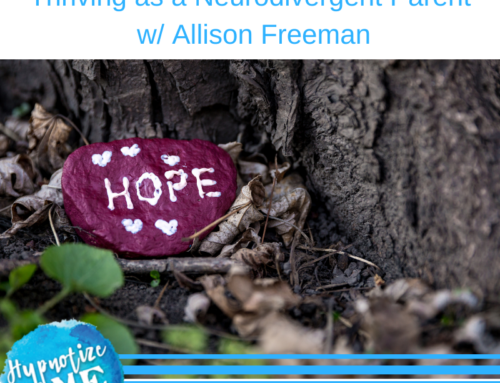“Undeserved” Forgiveness
The first time I heard this concept, I totally bust out laughing. I hope you enjoy hearing about and using the “technique” (really, Way of Living!) as much as I do! If you would like to comment on it and let me know your thoughts, please do so on my YouTube channel or on my FB page. If you prefer to read the transcript, it’s below.
Transcript
Hi. I’m Dr. Elizabeth Bonet with Conversations for Effective Living at FloridaPschotherapy.com. I’m recording from home today.
Today I’m going to talk about Undeserved Forgiveness . . . “Undeserved Forgiveness.” This is a concept that totally makes me laugh, and the first time I heard it I burst out laughing. I was at lunch with some friends and one of the men has a 16-year-old son. He had done something; I don’t remember what. And he was really struggling with what to do with him. “Do I punish him? Do I do this? Do I do that? He’s not even talking to me!” Another man beside me said, “I think you need to go to Undeserved Forgiveness.”
Again, I totally burst out laughing. It is a perfect concept for parenting, for couples, even for friendship sometimes. We all do things that sometimes are not great. Right?
Sometimes we’re a little shit, sometimes our kids are little shits, who knows? We all do stuff like that and to keep the relationship going as a parent, and as a friend, and as a partner I know that sometimes I have to soften my heart. I have to keep in relationship to that person that I love and I adore and I want to support and care for. And that’s particularly with our children and our partners.
Sometimes “Undeserved Forgiveness” is really where it’s at. Like, “No, you don’t really deserve this forgiveness but I don’t want to stay mad at you. I don’t want to move into resentment at you. So I’m going to soften my heart here and go into Undeserved forgiveness, like, “Yes, okay. We’re going to talk this out,” and that creates a space so that you can do that so that the relationship and the connection stay present.
End of Transcript
More Thoughts

“Undeserved” Forgiveness is something you practice.
People loved this video on FB and I want to expand on it some here. It’s not that our loved ones don’t always deserve forgiveness, particularly our children. If you’re a Borderline Mom, this is sometimes really hard for you to let go of anger, not take things that they do to you personally, and to soften towards them. It’s really a skill to be able to do that. So before anything, give yourself a break and realize this is something you “Practice.
Back to the original concept of “undeserved.” It is referring to that time period when someone has done something, like what the Gottmans refer to in Gottman Couples Therapy as “unintentional slights.” It’s stuff we do that maybe we didn’t intend to hurt the other person. Or sometimes there was intention or deliberate misbehavior, particularly in children. (If you have a partner doing that, check out whether you’re Married to a Narcissist.)
But no one has apologized yet or no feelings have been attended to. No reparations have been made. It takes one person, at least, to soften their heart and move into forgiveness. You could also say that this is giving your partner or child the benefit of the doubt.
Now this is easier sometimes with children. We know they’re growing and developing and are not emotionally mature yet. So we give them the benefit of the doubt in order to keep our connection to them. We give them “Undeserved Forgiveness.” We say something like, “I know you didn’t mean to hurt me . . . .” And the conversation continues from there.
But with Partners
It is harder often with a partner. We assume all these ill intentions sometimes or are just frustrated by what we consider “stupidity.” But the more that you can move there even with your partner, the quicker you get to understanding them and emotionally connecting with them. The quicker you get to that squishy, open place of feeling connected. And happy.
That place is actually much easier to live in than a place of holding anger and resentment.
Couples in Distress don’t Forgive
What the Gottmans found in their research is that couples in distress, couples who need help, offer forgiveness much less than couples who are not distressed. Couple in distress engage in retaliation much more frequently than couples not in distress. Revenge, yes.
Couples where the marriage is in trouble seek revenge more frequently.
Couples not in distress give forgiveness more frequently.
Getting to that place where wounds are healed and forgiveness happens is a skill we practice in couples counseling in my practice in Fort Lauderdale (Hollywood). There are actual steps you can follow to get there and actions you can take. Couples don’t just come in and go at it. We use structure to get to feelings in a safe way.
Hopefully that lends more understanding to the video.
 If you would like couples counseling and you live in the Fort Lauderdale / Broward County area or anywhere in Florida or Internationally (Online therapy also available), email me at drliz@floridapsychotherapy.com.
If you would like couples counseling and you live in the Fort Lauderdale / Broward County area or anywhere in Florida or Internationally (Online therapy also available), email me at drliz@floridapsychotherapy.com.
Yours in health,
Dr. Liz






